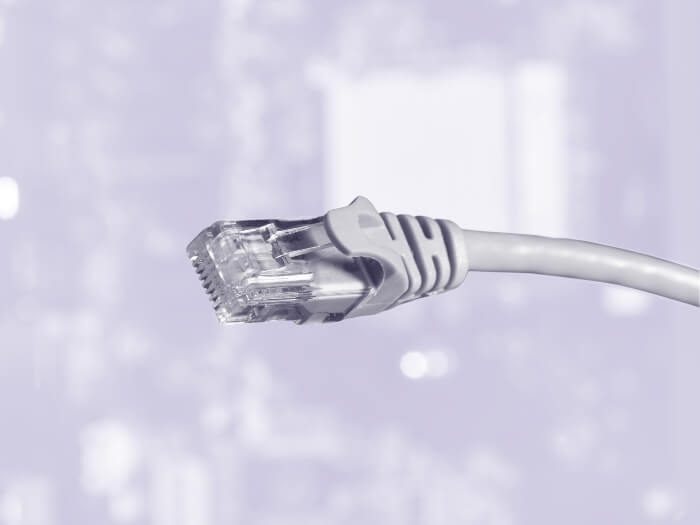10 Essential Cybersecurity Tips Every Small Business Owner Needs to Know
In the bustling business landscape of Miami, small business owners face unique challenges and opportunities. One critical aspect that can’t be overlooked is cybersecurity. With cyber threats becoming increasingly sophisticated, it's essential to protect your business from potential attacks. At Prime Tech Business, we specialize in providing top-notch cybersecurity solutions tailored for Miami's small businesses. Here are ten essential cybersecurity tips to help you safeguard your business and stay ahead of potential threats.
Tip #1: Implement Strong Password Policies
Ensure that all employees use complex passwords that include a mix of letters, numbers, and special characters. Avoid using common passwords or the same password across multiple accounts. Regularly update passwords and use a password manager to store them securely. Enforce password policies by setting requirements within your systems and regularly auditing compliance.
Tip #2: Use Multi-Factor Authentication
Multi-factor authentication (MFA) adds an extra layer of security by requiring multiple forms of verification before granting access. This can include something the user knows (password), something they have (security token), and something they are (biometric verification). Implement MFA across all critical systems and accounts. Create a standard operating procedure (SOP) to ensure MFA is enforced on every new application. Educate your employees on the importance of MFA and provide step-by-step guides on how to enable it.
Tip #3: Regularly Update Software and Systems
Keeping your software and systems updated is crucial in protecting against vulnerabilities. Cybercriminals often exploit outdated software to gain access to networks. Regularly check for updates and apply patches as soon as they are available. Enable automatic updates where possible. Establish a routine for software updates and designate a team member responsible for overseeing this process.
Tip #4: Conduct Regular Security Audits
Identify vulnerabilities before they can be exploited by conducting regular security audits. These audits should include a thorough review of your network, applications, and data security measures. Address any identified issues promptly to enhance your security posture. Use third-party security firms for comprehensive audits and ensure that internal audits are part of your regular IT maintenance schedule.
Tip #5: Educate Your Employees
Educate your employees about the latest threats and best practices for avoiding them. This includes recognizing phishing emails, securing sensitive data, and following company security policies. Conduct regular training sessions and keep employees informed about new threats. Develop an internal knowledge base with resources and guidelines on cybersecurity practices.
Tip #6: Secure Your Wi-Fi Networks
Ensure your Wi-Fi network is encrypted using WPA3 or at least WPA2 and use strong passwords. Set up a separate guest network for customers and visitors to prevent unauthorized access to your main network. Regularly update your Wi-Fi router’s firmware. Conduct periodic security checks to ensure your Wi-Fi settings are up to date and secure.
Tip #7: Backup Your Data Regularly
Regular data backups are essential to recover from data loss incidents such as ransomware attacks or hardware failures. Ensure that backups are stored securely and tested regularly to confirm they can be restored quickly. Use both on-site and off-site backup solutions. Schedule automatic backups and routinely verify the integrity of your backup data.
Tip #8: Install Anti-Malware and Anti-Virus Software
Protect your systems with reliable anti-malware and anti-virus software. These tools can detect and remove malicious software before it can cause harm. Ensure the software is kept up to date to protect against the latest threats. Perform regular scans and keep the software’s threat database updated to the latest version.
Tip #9: Develop an Incident Response Plan
Outline the steps to take in the event of a cyberattack. This plan should include procedures for isolating affected systems, notifying relevant parties, and recovering data. Regularly review and update the plan to ensure its effectiveness and conduct drills to test it. Assign specific roles and responsibilities to team members to ensure a coordinated response.
Tip #10: Partner with a Local Cybersecurity Expert
Ensure that you have access to the latest security solutions and expertise by partnering with a local cybersecurity expert like Prime Tech Business. We understand the unique challenges Miami businesses face and provide tailored services to meet your specific needs. Our local presence allows us to offer prompt, personalized service to help you stay secure.
Conclusion
Cybersecurity is a critical concern for small business owners in Miami. By implementing these essential cybersecurity tips, you can significantly reduce the risk of cyberattacks and protect your business. At Prime Tech Business, we're committed to helping Miami businesses secure their operations with expert cybersecurity solutions. Contact us today to learn more about how we can support your cybersecurity needs and keep your business safe.
Recommended Articles by the Editor
As a business owner in Wynwood Miami Area read this article on how The Top Five Cybersecurity Threats Facing Businesses in Wynwood
This Article will inform you how to Protect your Business from a BEC (Business Email Compromise) Scam
Another article I highly recommend: Keep Yourself Safe from Phishing Attacks: What Miami Business Owners Need to Know
MIAMI PROFESSIONAL IT SUPPORT

